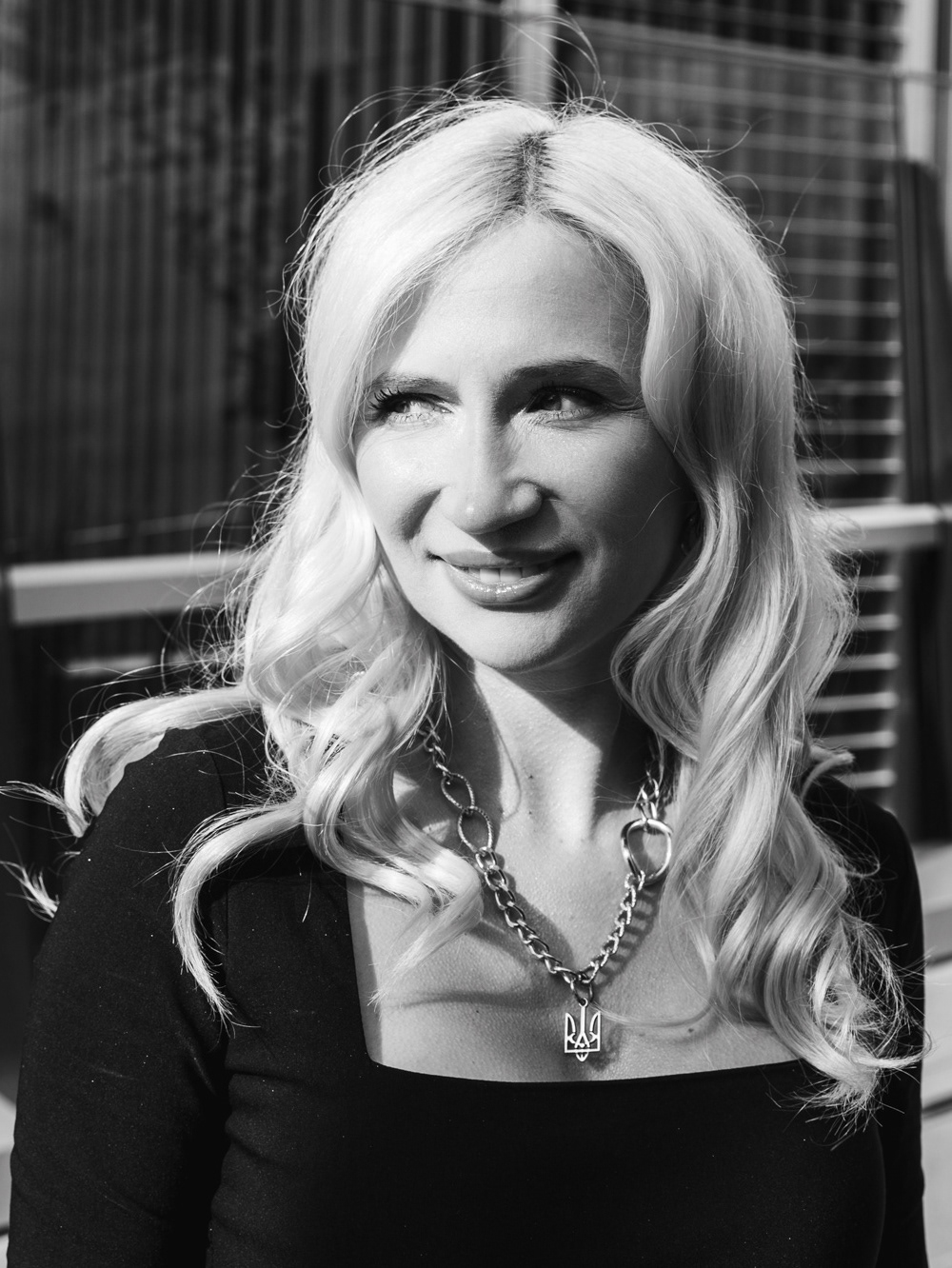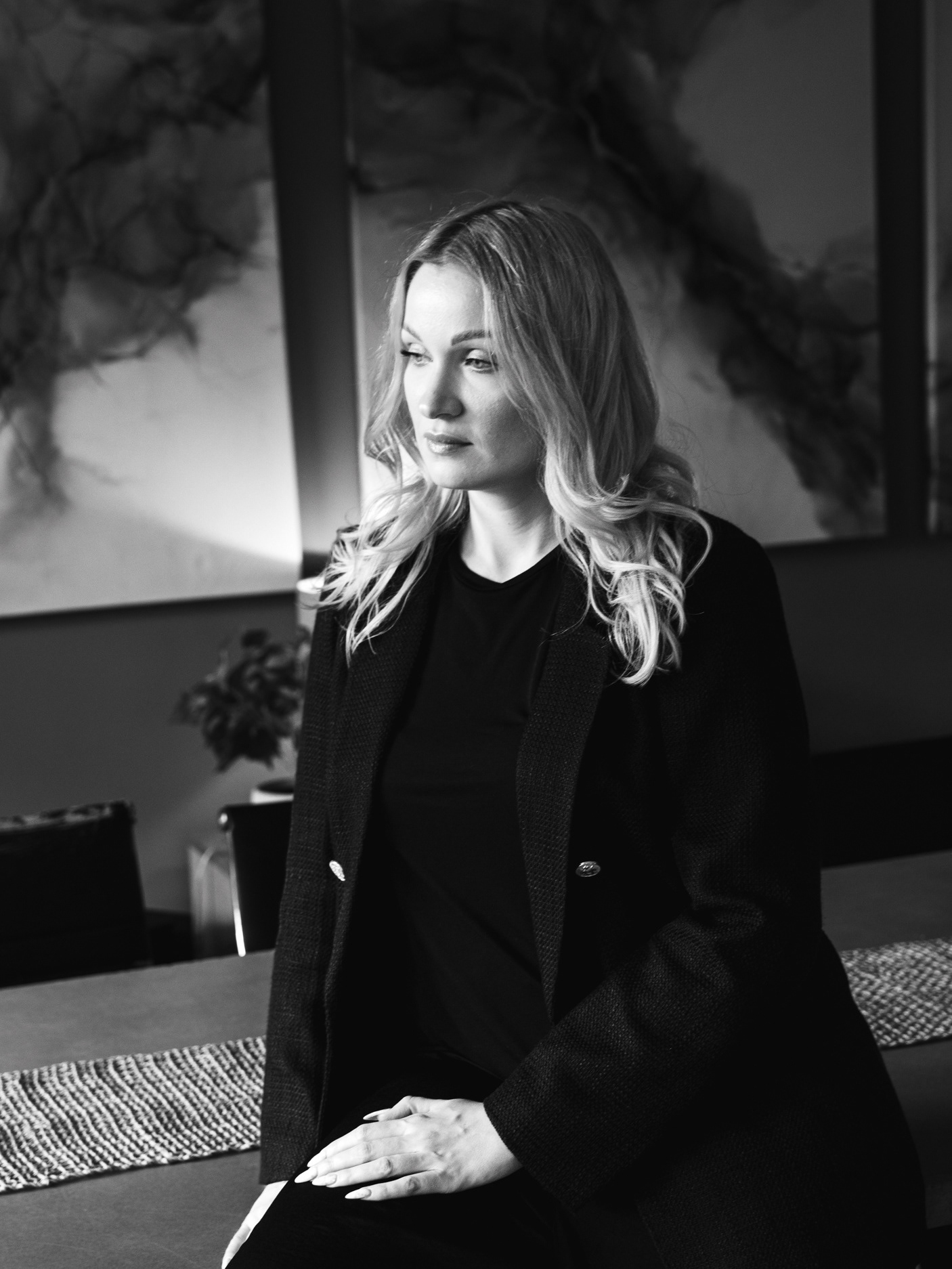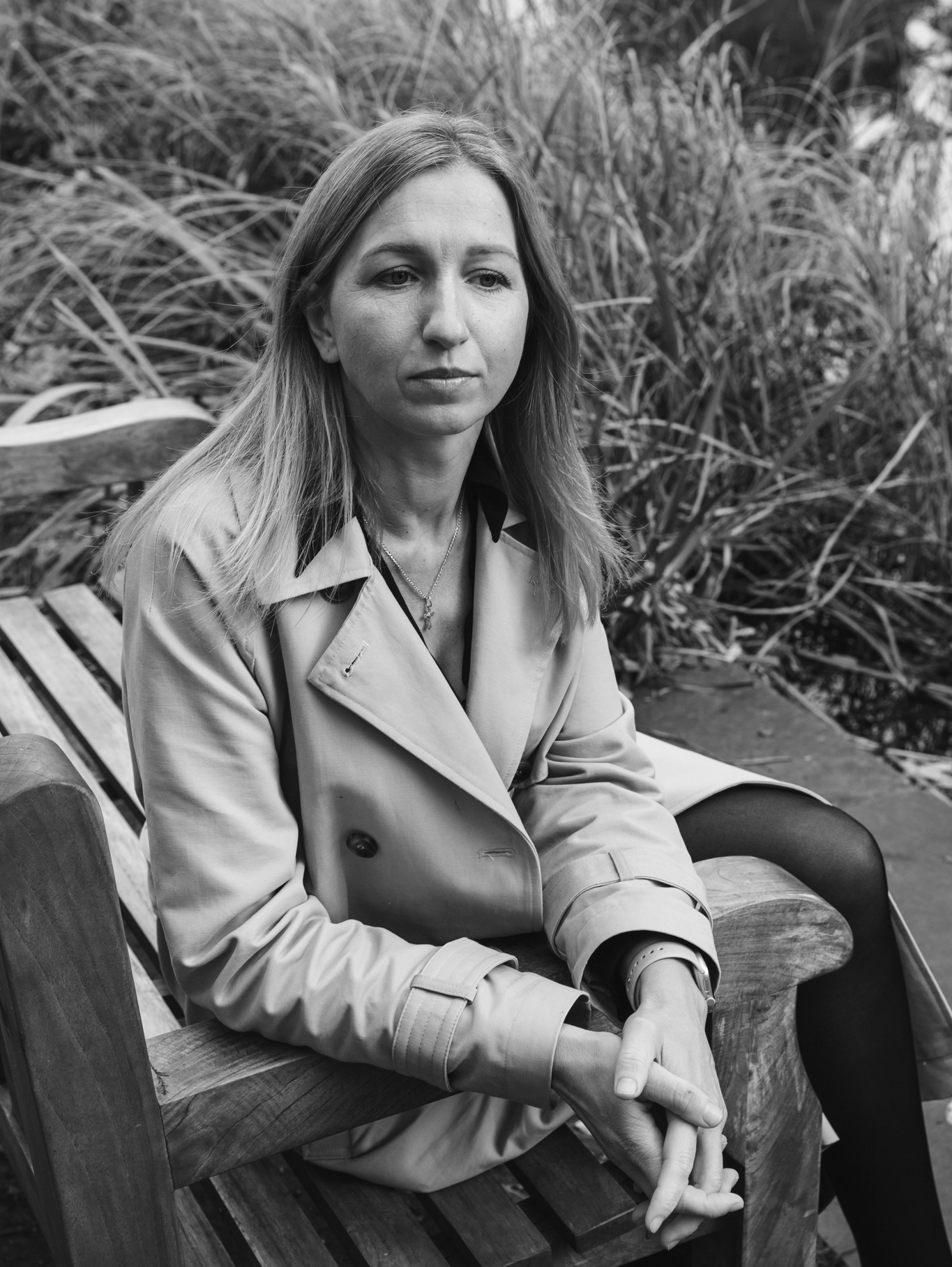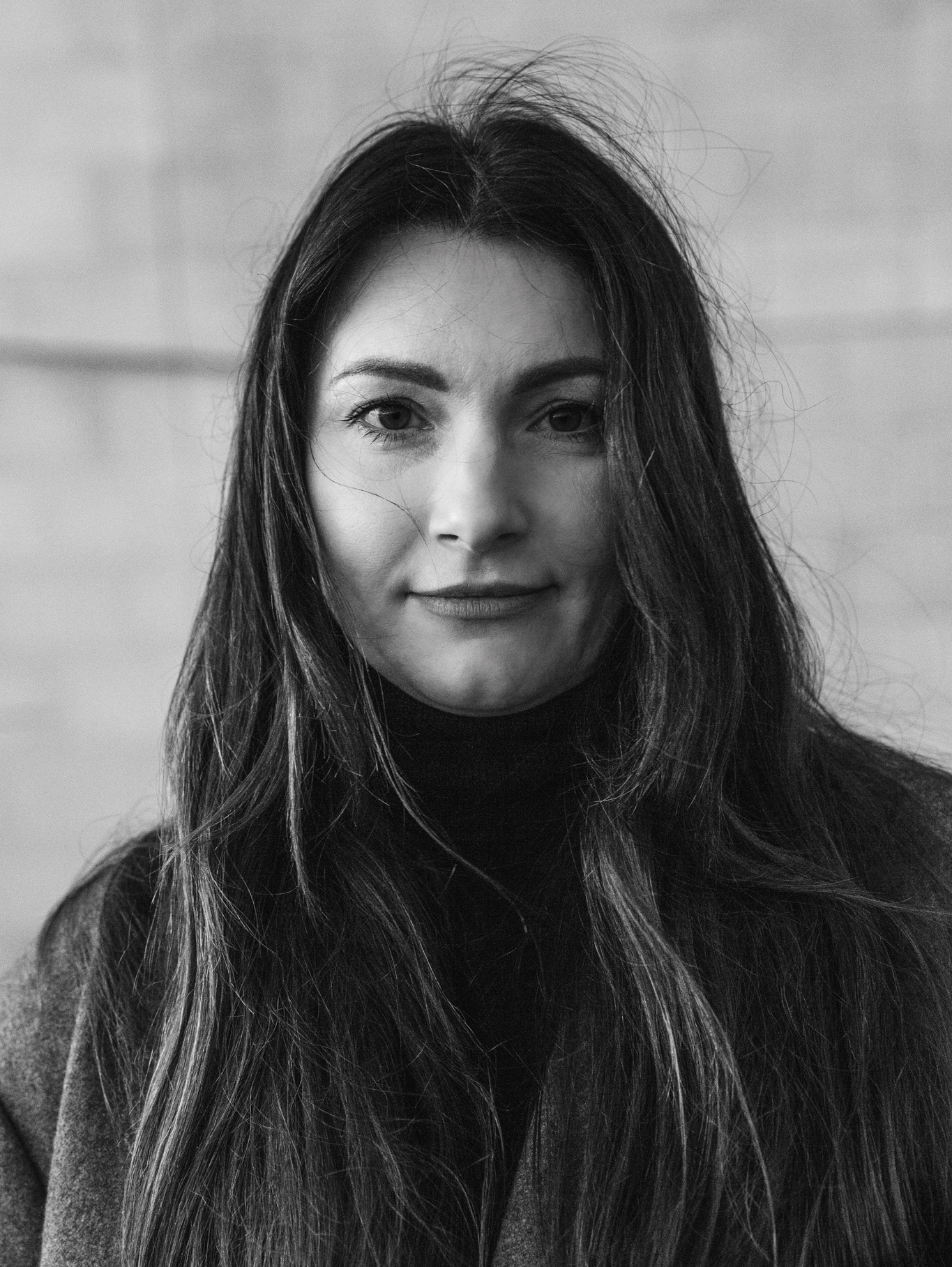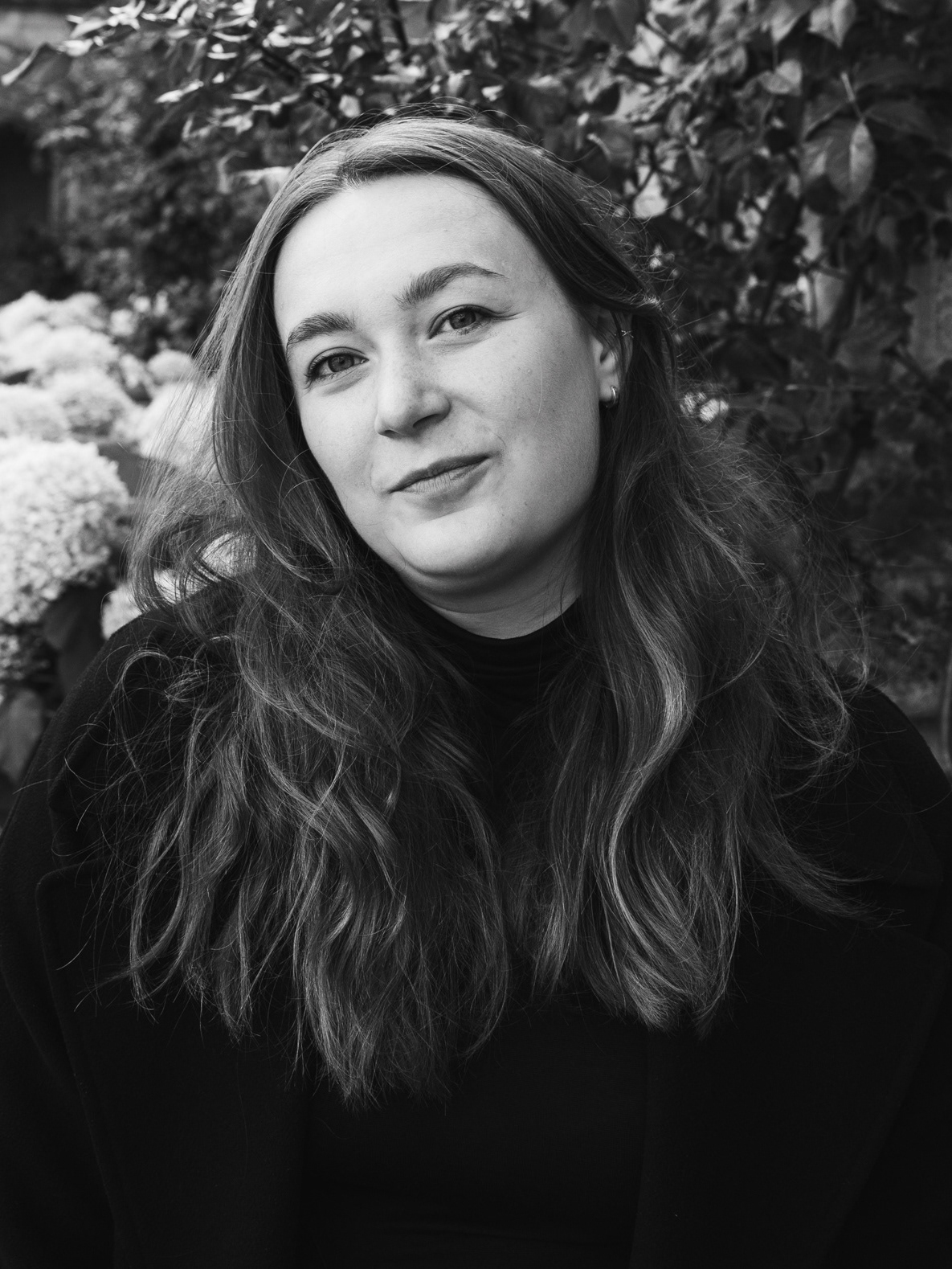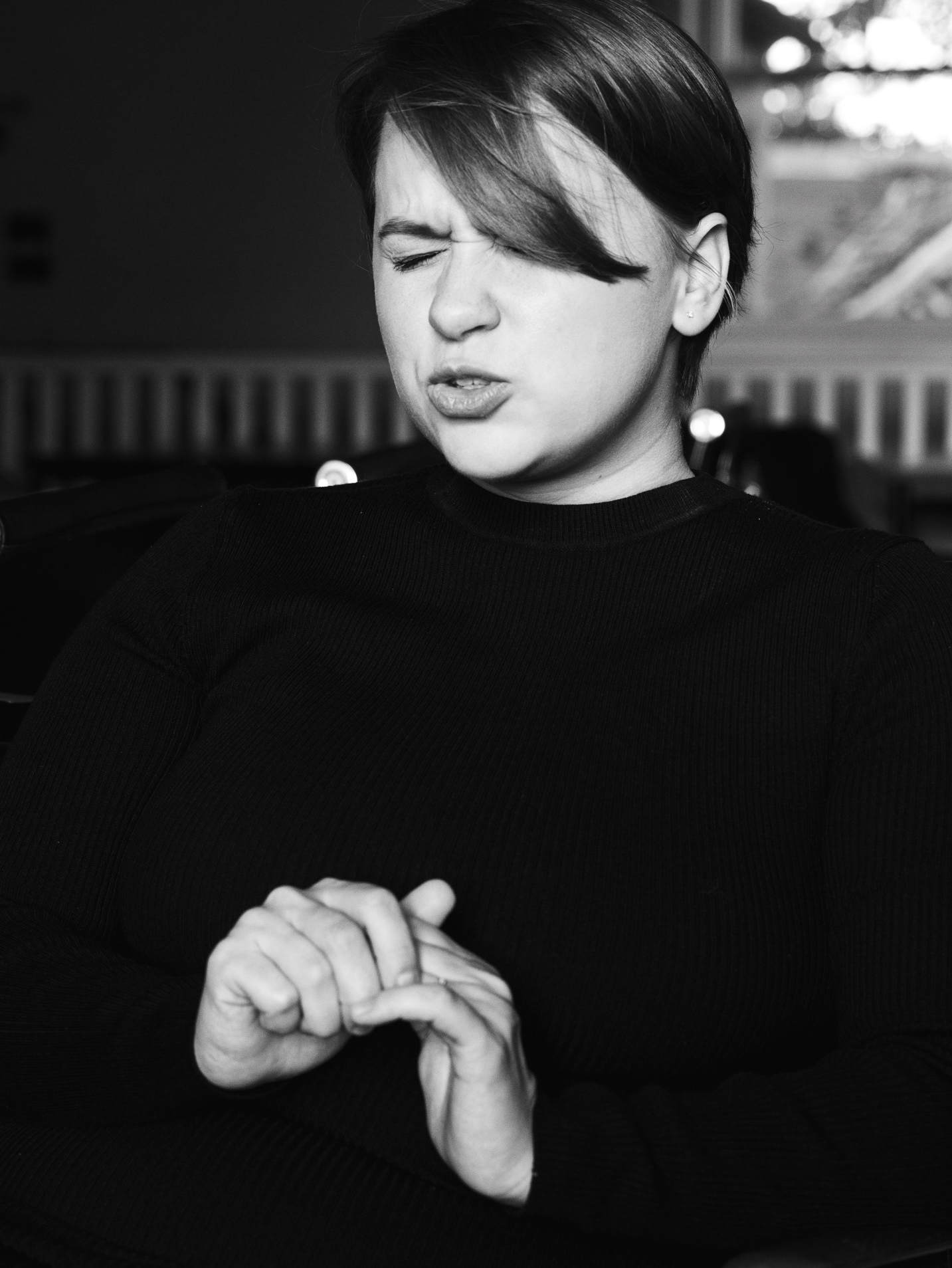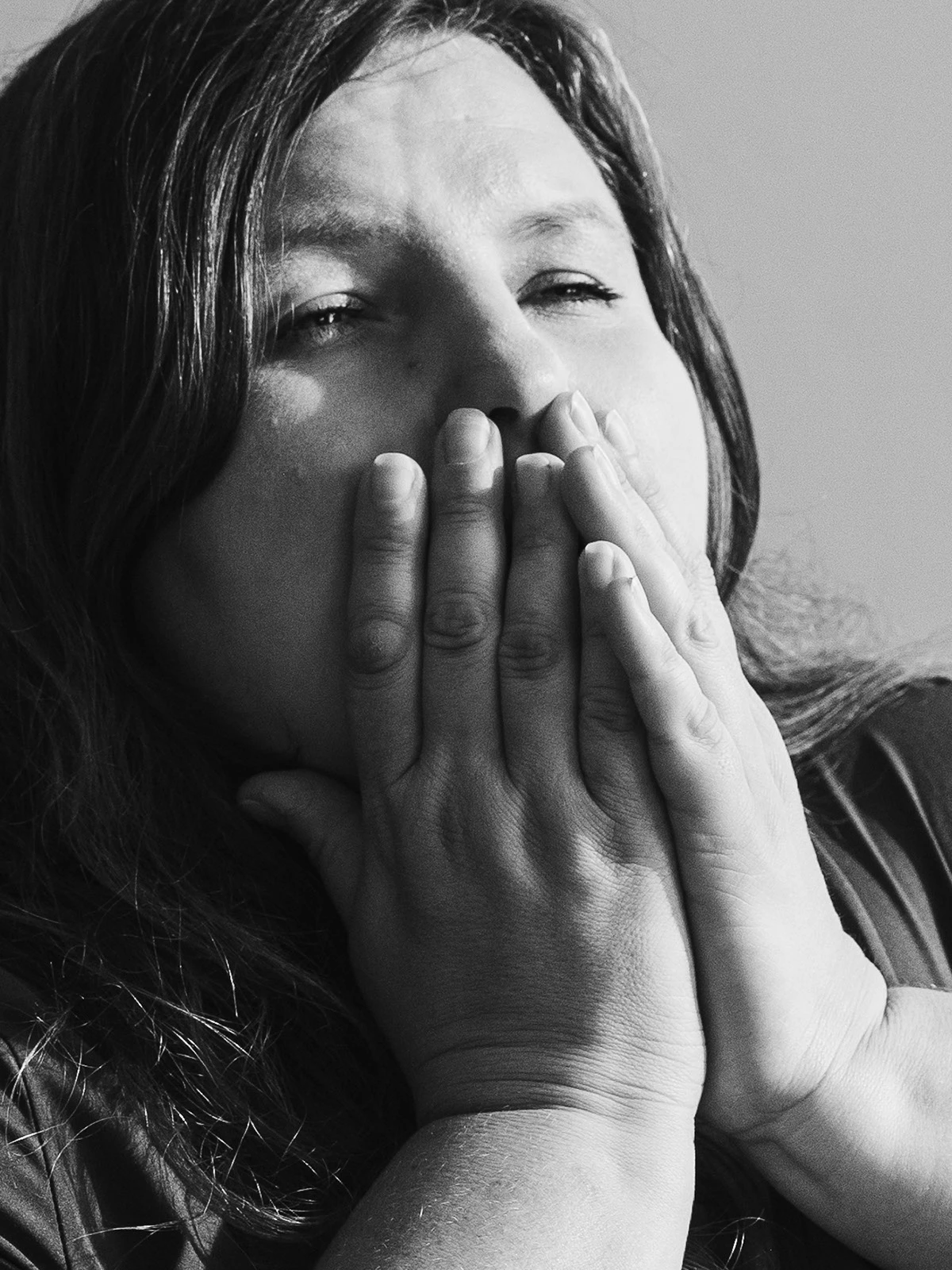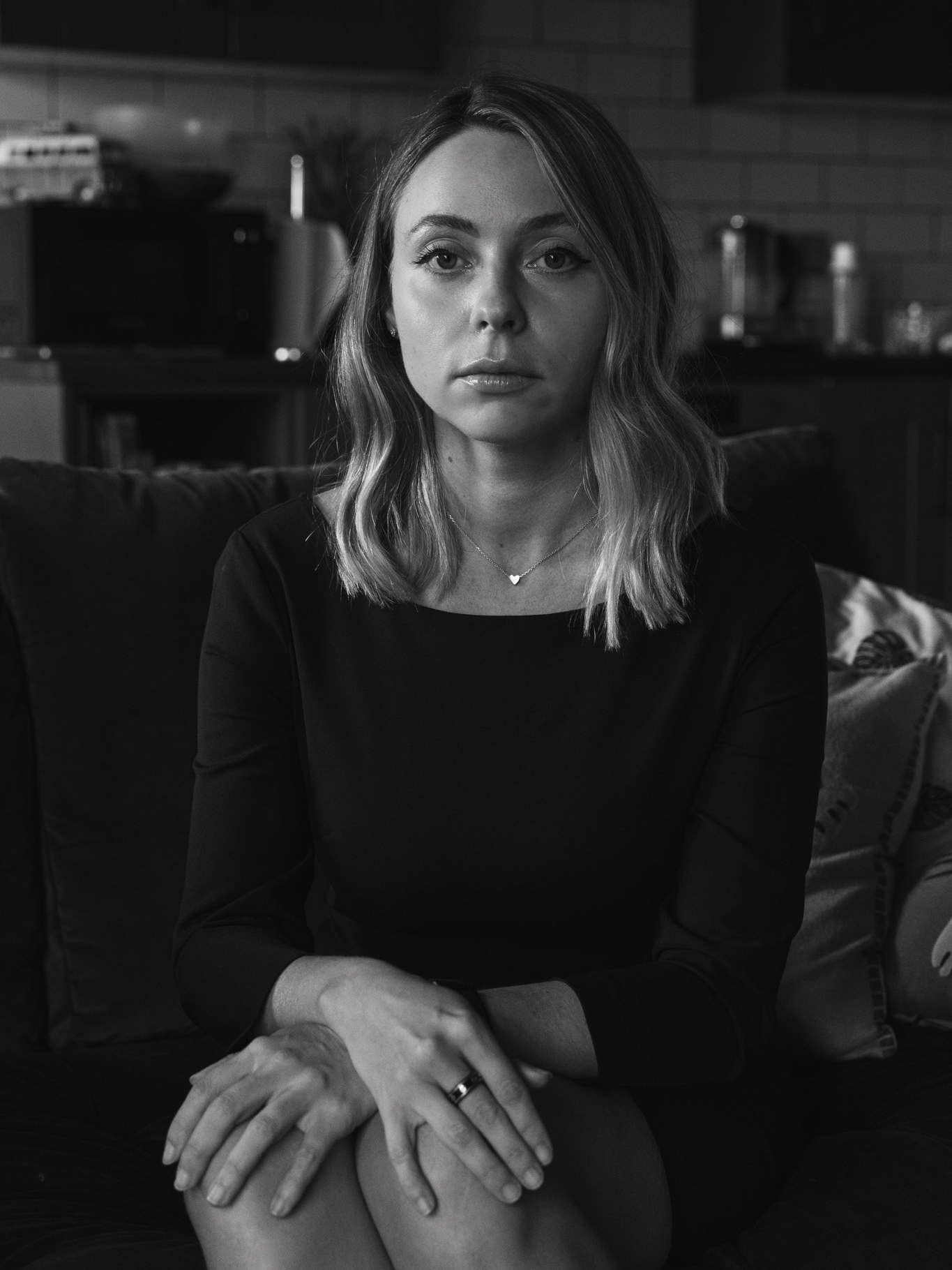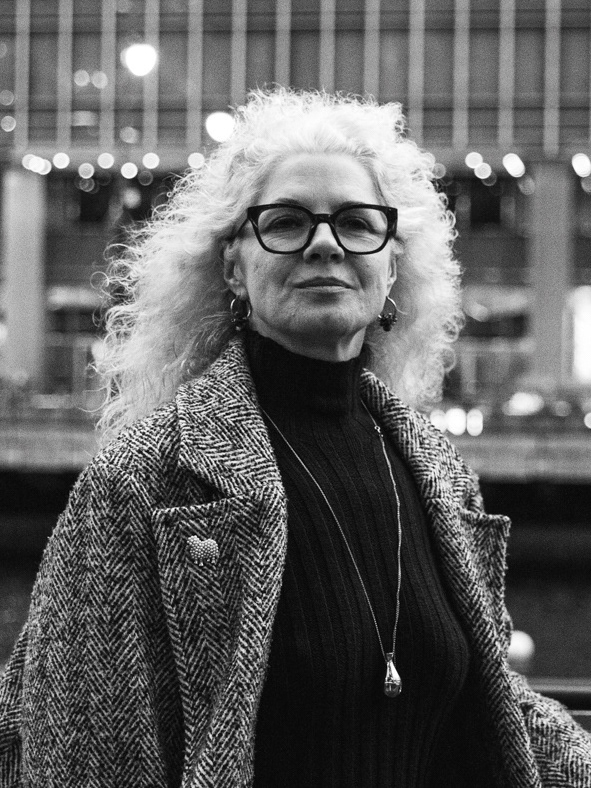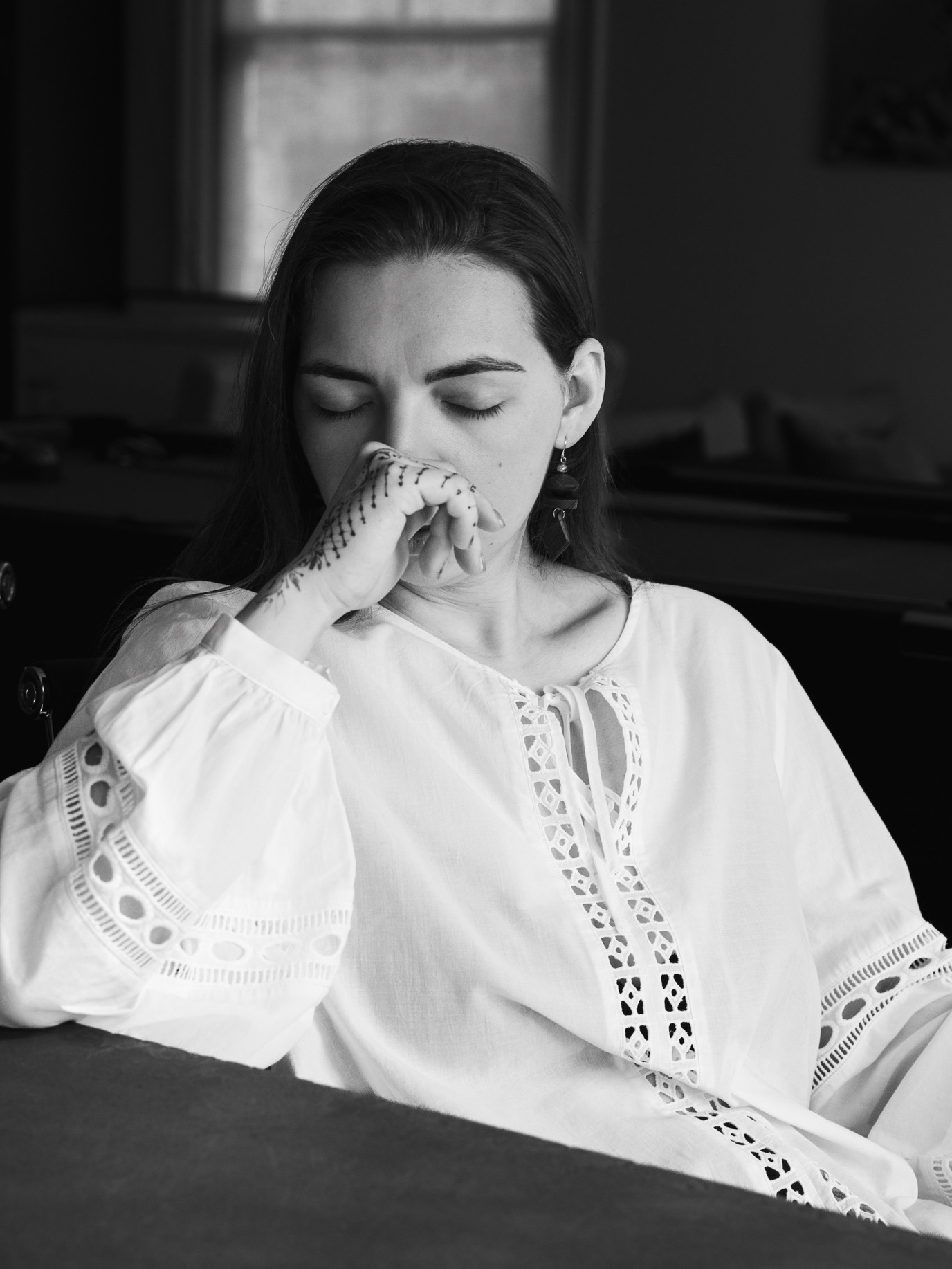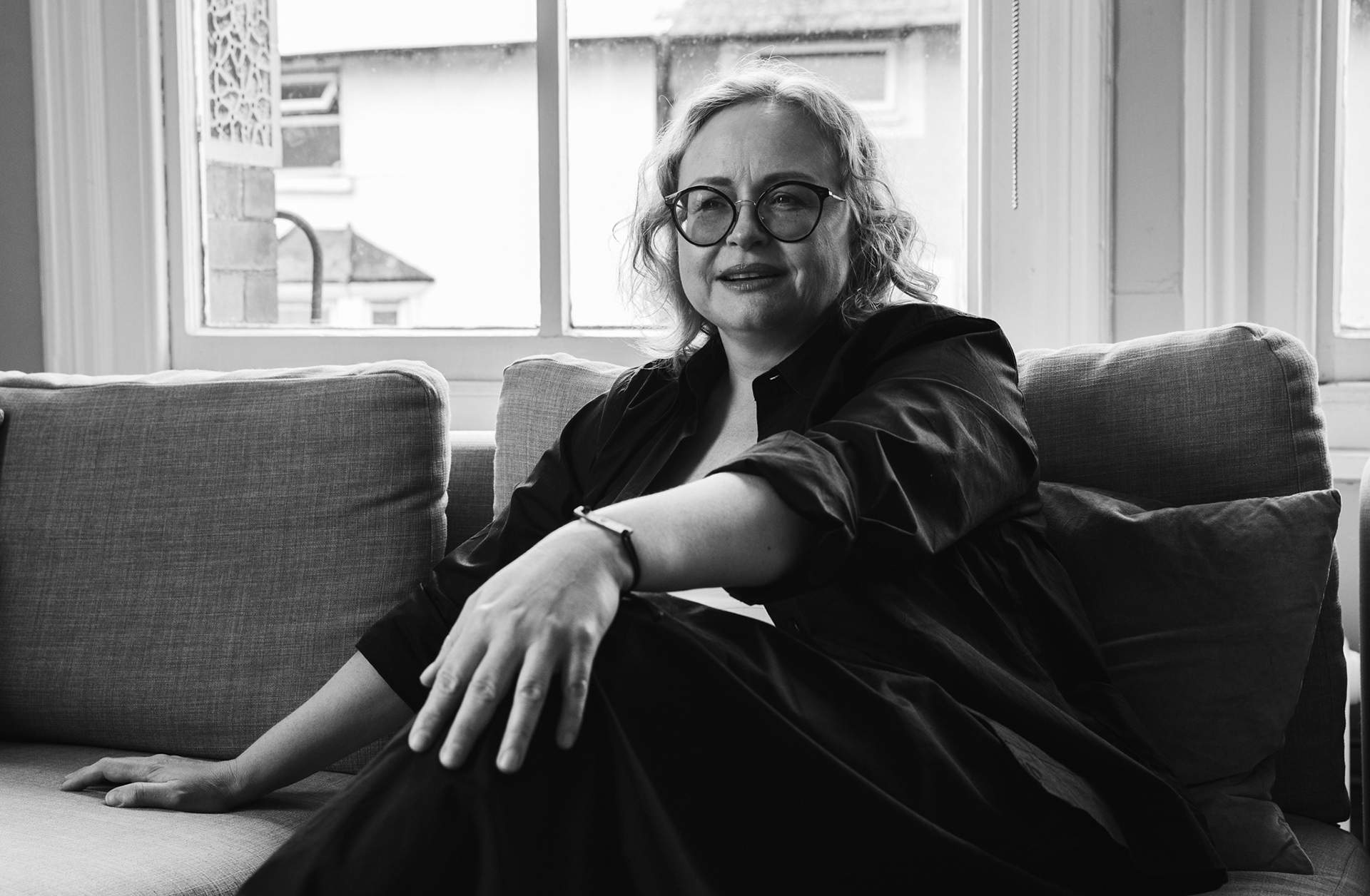
The Strength Born from Chaos
When the first sirens cut through the silence over Kyiv on February 24, 2022, Olga Silaeva was at home with her son. Her husband, who was living in their country house, immediately brought her their dog as he had decided to enlist in the Territorial Defense Forces. The air was thick with panic and uncertainty. But for Olga, the most terrifying thing was not happening in the capital, but in her heart, as her elderly parents remained in Mariupol.
A few days before the invasion, she had a terrible dream. "I dreamt that I was home alone. And some crazy, terrifying man breaks into the house. He rushes at me with an axe and starts destroying everything inside... When my neighbour and I returned, I saw through the windows that he was pouring gasoline everywhere and setting the house on fire from within," she recalls. "Only later did I realise that I had dreamt of my home, the one where I was born, where my childhood was spent."
She called her parents every day, begging them to leave, but like most elderly people, they clung to their home. "They told me: 'We've prepared the cellar, don't worry, we've bought candles and matches.'" On February 25, Olga and her son left Kyiv for western Ukraine. And on March 2, contact with Mariupol was lost. A month of hellish uncertainty began.
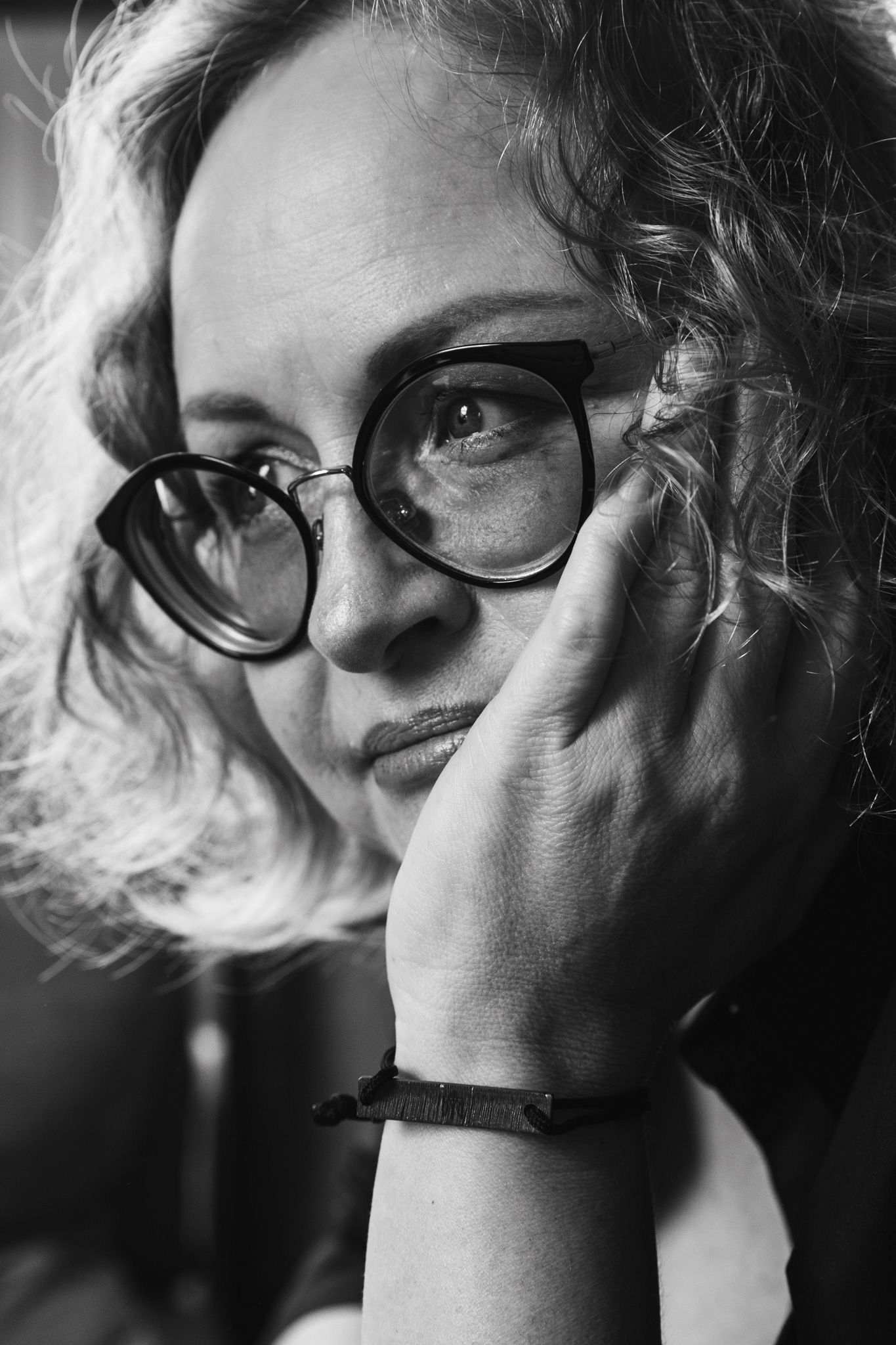
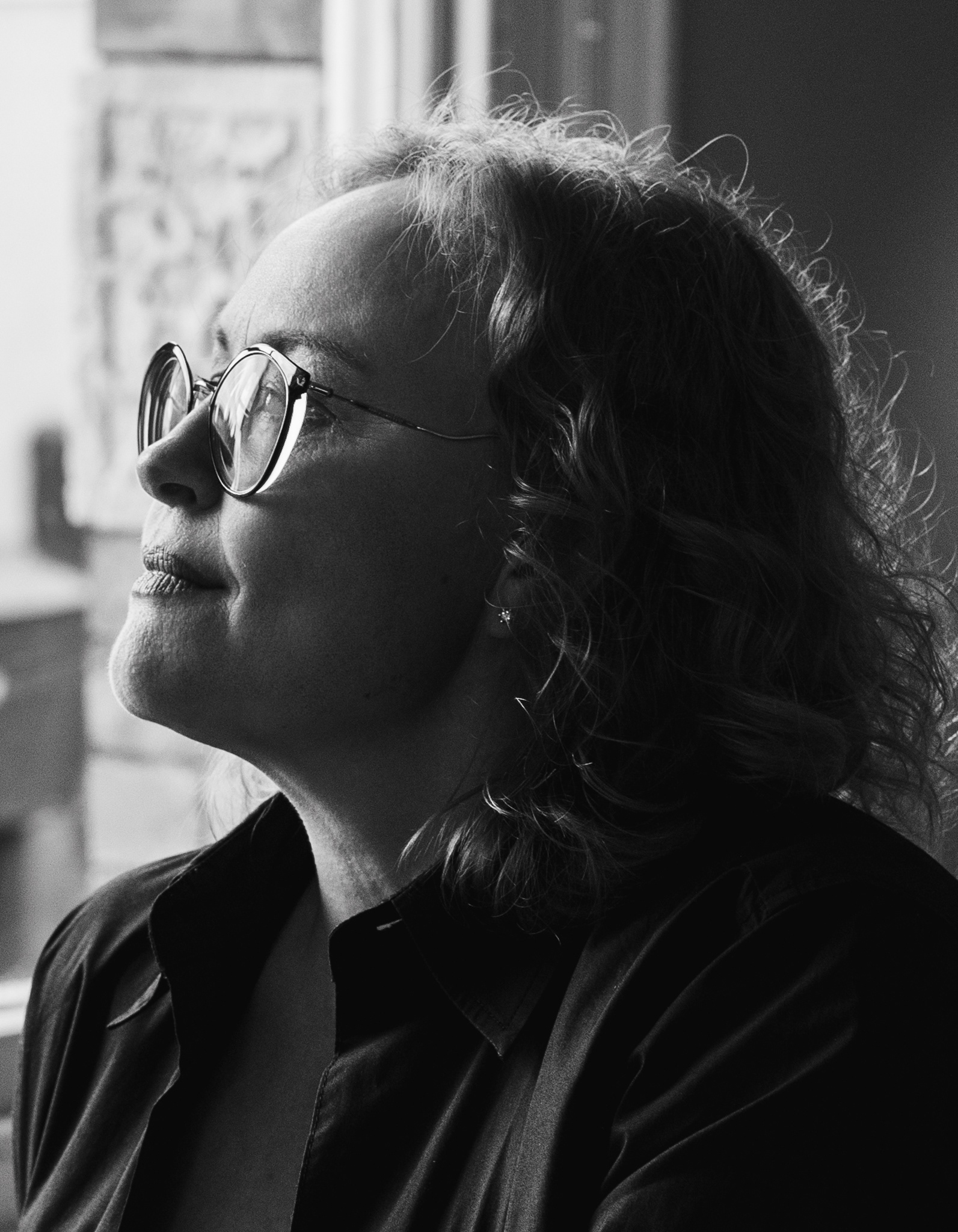
Rescue from Hell and the German Experience
It was only in mid-April that her parents made contact. They had survived. Their house was destroyed by multiple hits, but the cellar remained intact. They were saved from starvation by the food supplies they had stored, a lesson learned from their grandmother who remembered the Holodomor. "I always used to laugh at my grandmother, I mean, how much buckwheat can you store? But it turned out that... this really saved them."
The Russians deported them to occupied territory, and from there to Russia, near St. Petersburg. Without hesitation, Olga rushed to help. She found a person in Russia who was helping Ukrainians—a priest, Father Grigory—through whom her parents managed to get to the Estonian border.
"I got in the car and drove to Estonia to pick them up... I arrived on the fourth day, I just slept in the car, woke up in the morning and kept driving."
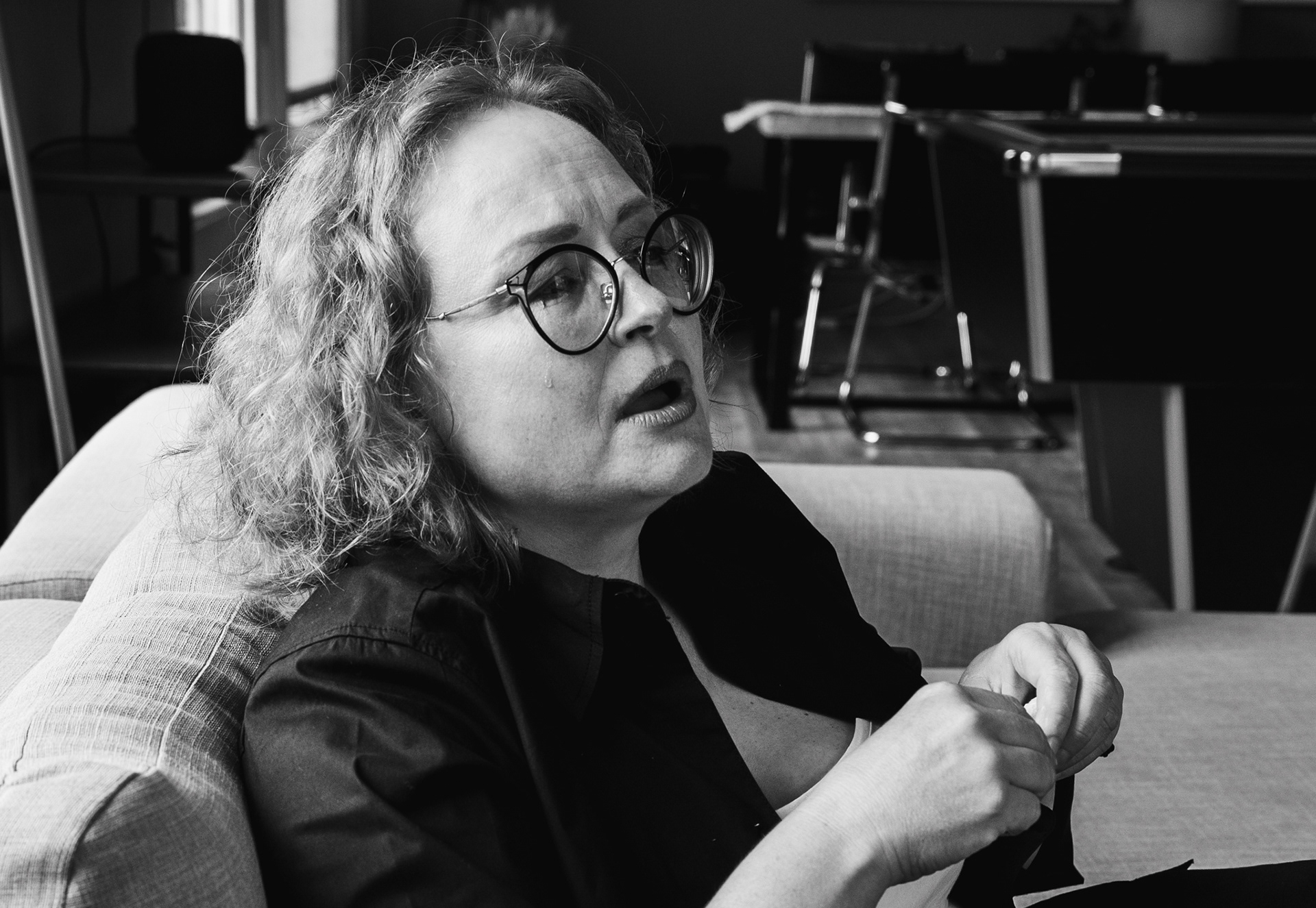
She picked up her grief-stricken, exhausted parents and sister and took them to Germany. They already had acquaintances in Germany who said it was possible to find housing and get help. In those first months, the support and help from people in all countries was immense; volunteers in Germany helped them rent a separate apartment and begin to settle in. But there was no peace.
It was then that her husband, who had volunteered for the Territorial Defense in the first days and later ended up in the 47th "Magura" Brigade, was sent to Bakhmut. In June, during the fiercest battles, he was severely wounded. She lost contact with him.
"Just as we had settled in Germany, they immediately sent us to German language courses, 4 hours every day, and I have no contact with my husband, I'm in complete shock. What courses? What German?"
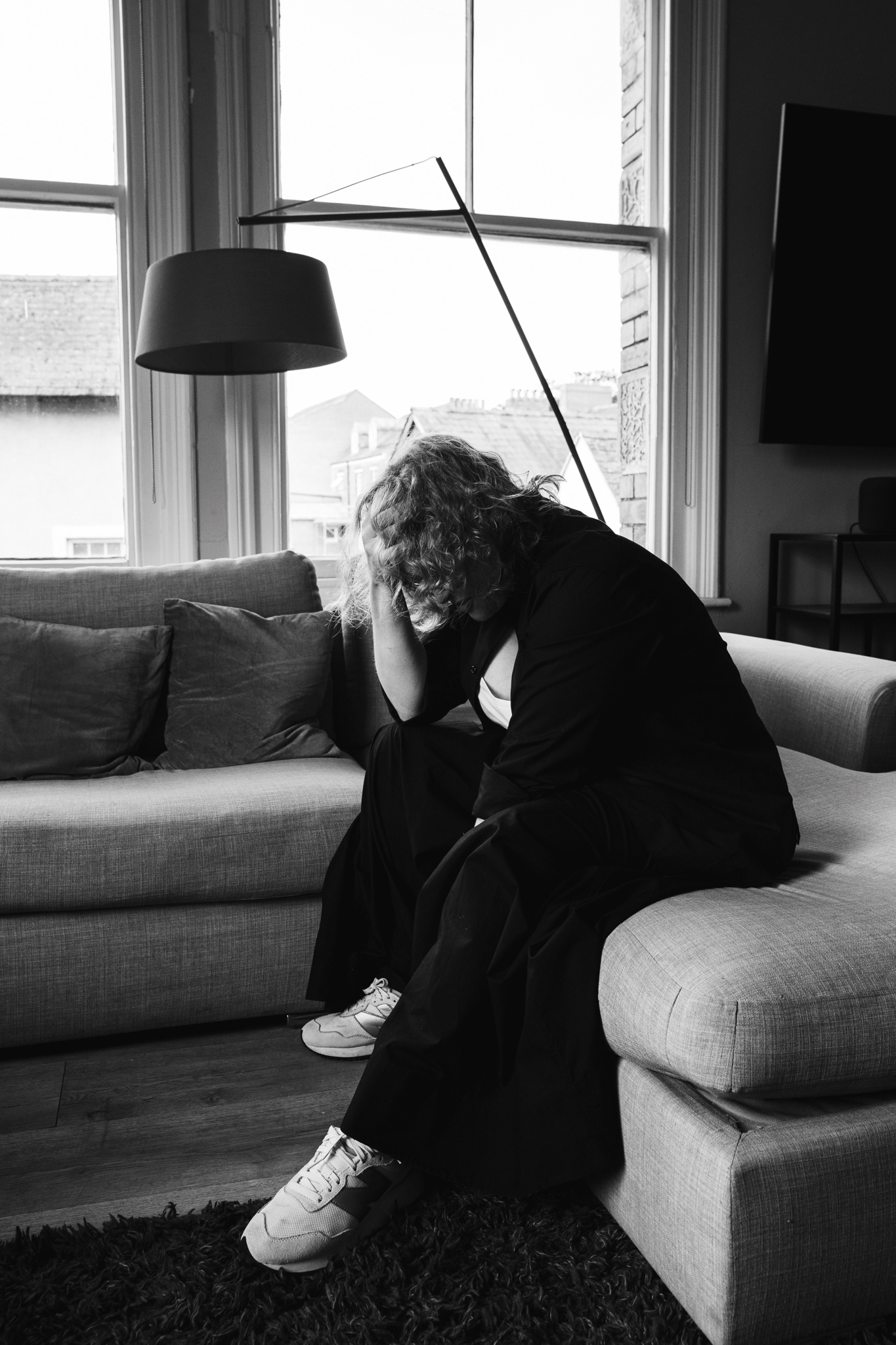
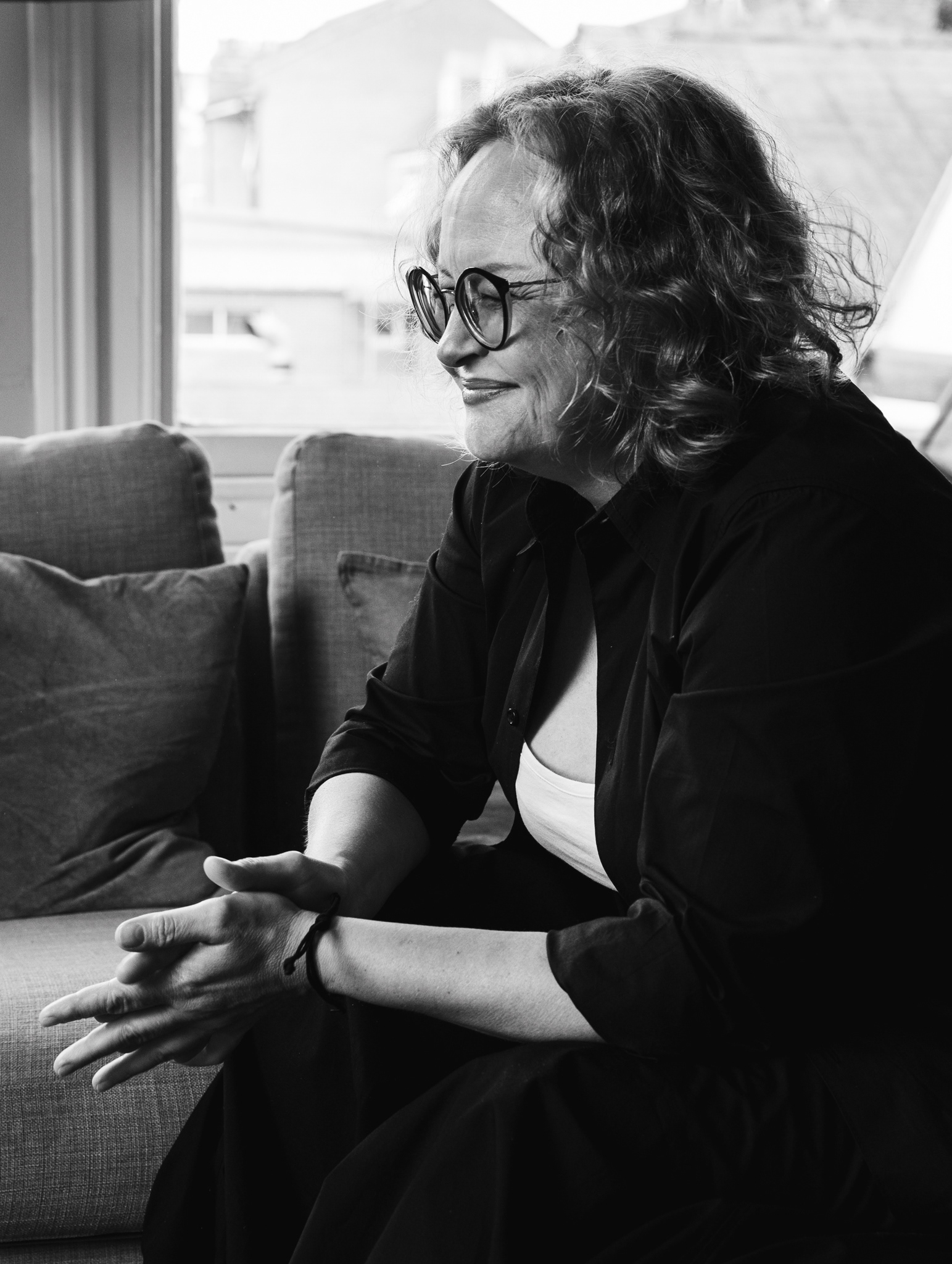
She dropped everything and, without permission, went to him at the hospital in Ternopil. After his surgery, suffering from neuropathic pain that kept him from sleeping, they returned to Kyiv. And there, he insisted that Olga go back to her family. "He insisted that I leave because it was better for him to be alone," she recalls with pain. After returning to Germany, she felt she could not stay there. "Germany did not win my heart, it was very difficult for me there," she says. And then, England appeared in their lives.
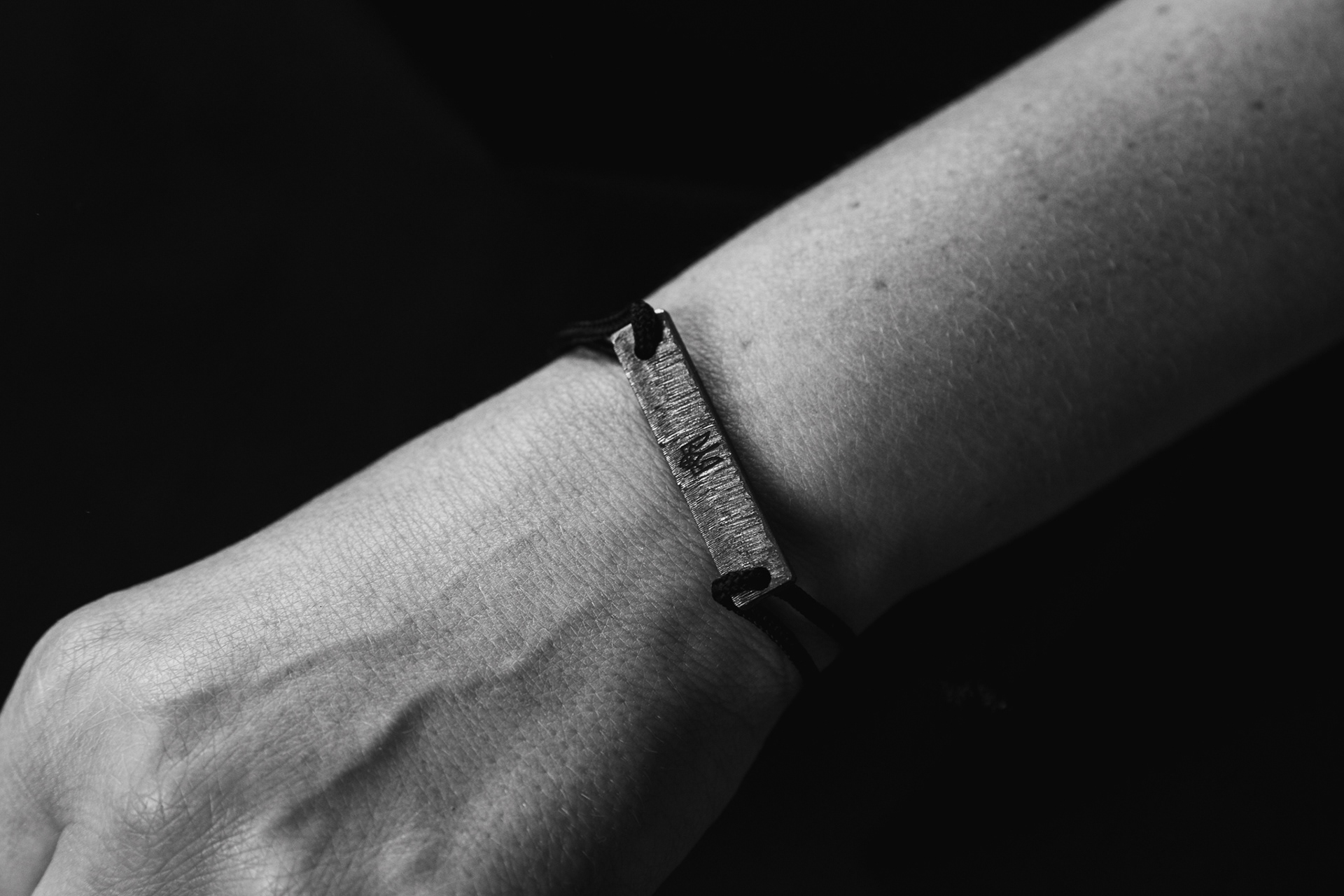
England and Sponsor John: A New Home
Thanks to an old friend living in Britain, they found a sponsor. "She helped us, she lives in Britain now. She has a friend who knows John, our sponsor, very well. She kept nudging this friend: 'There are good people here, they need a good sponsor.' And the friend recommended us to John as decent people," Olga explains.
They have been living with John for two years now. He has become a true pillar of support for them. "He is very supportive and helps with everything, he supports our events, he worries about Ukraine, and he is very well-versed in politics. John is truly incredible. He even allowed me to bring my German Shepherd... although he had never had dogs before. I said: 'Are you sure? Please think carefully about it.'" This trust and openness became the foundation of their warm relationship.
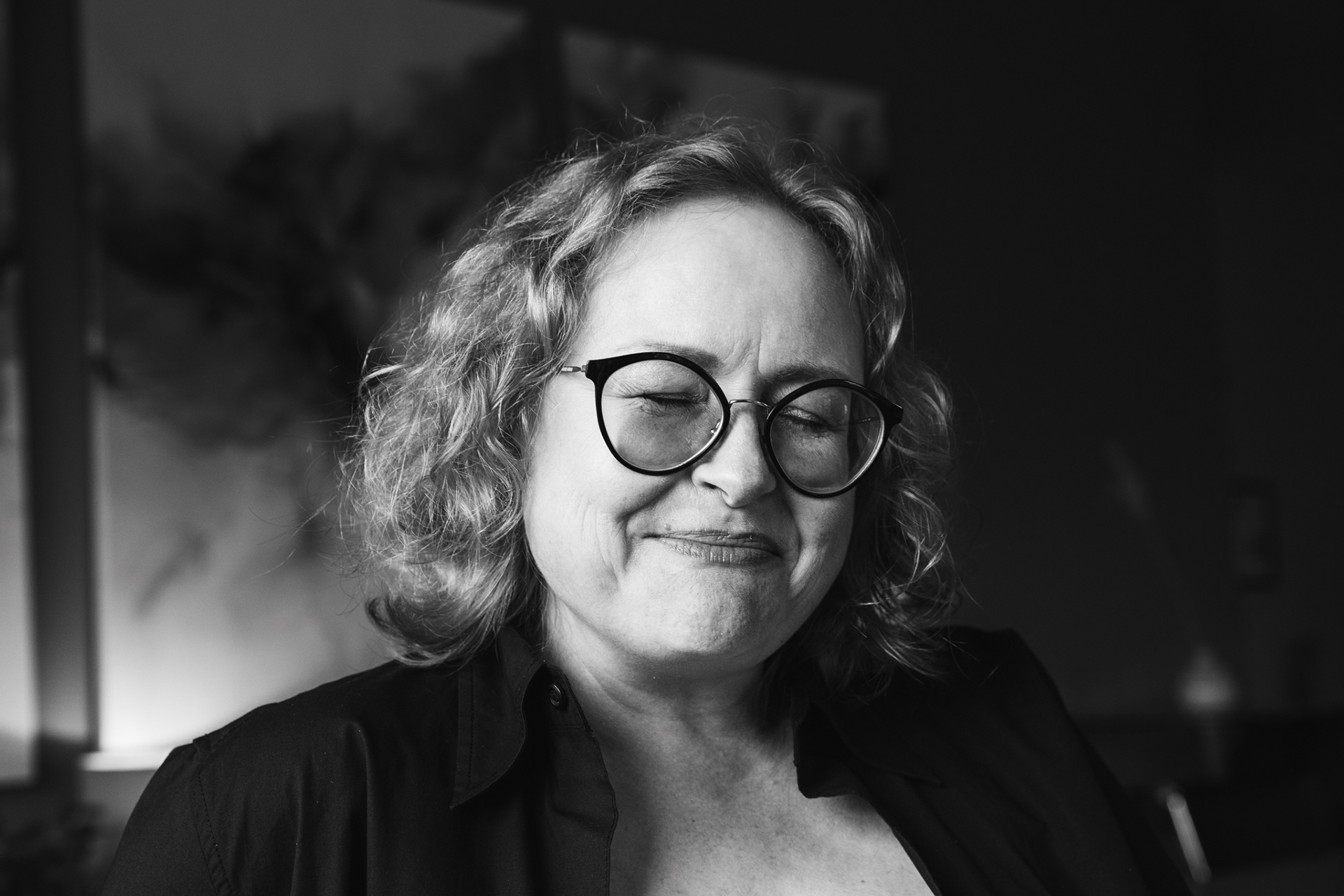
Of course, there were incidents. One time, the dog, protecting its territory, bit the postman. But even in this stressful situation, John remained calm and supported them. His adult daughters often visit, and although the language barrier makes it difficult for Olga to maintain a deep conversation, she feels like part of their family circle.
But war can destroy not only homes but also relationships. "I've seen my husband only three times in three years... Many Ukrainian families are now breaking up because of the distance. It's not an easy task to keep them together under these conditions."
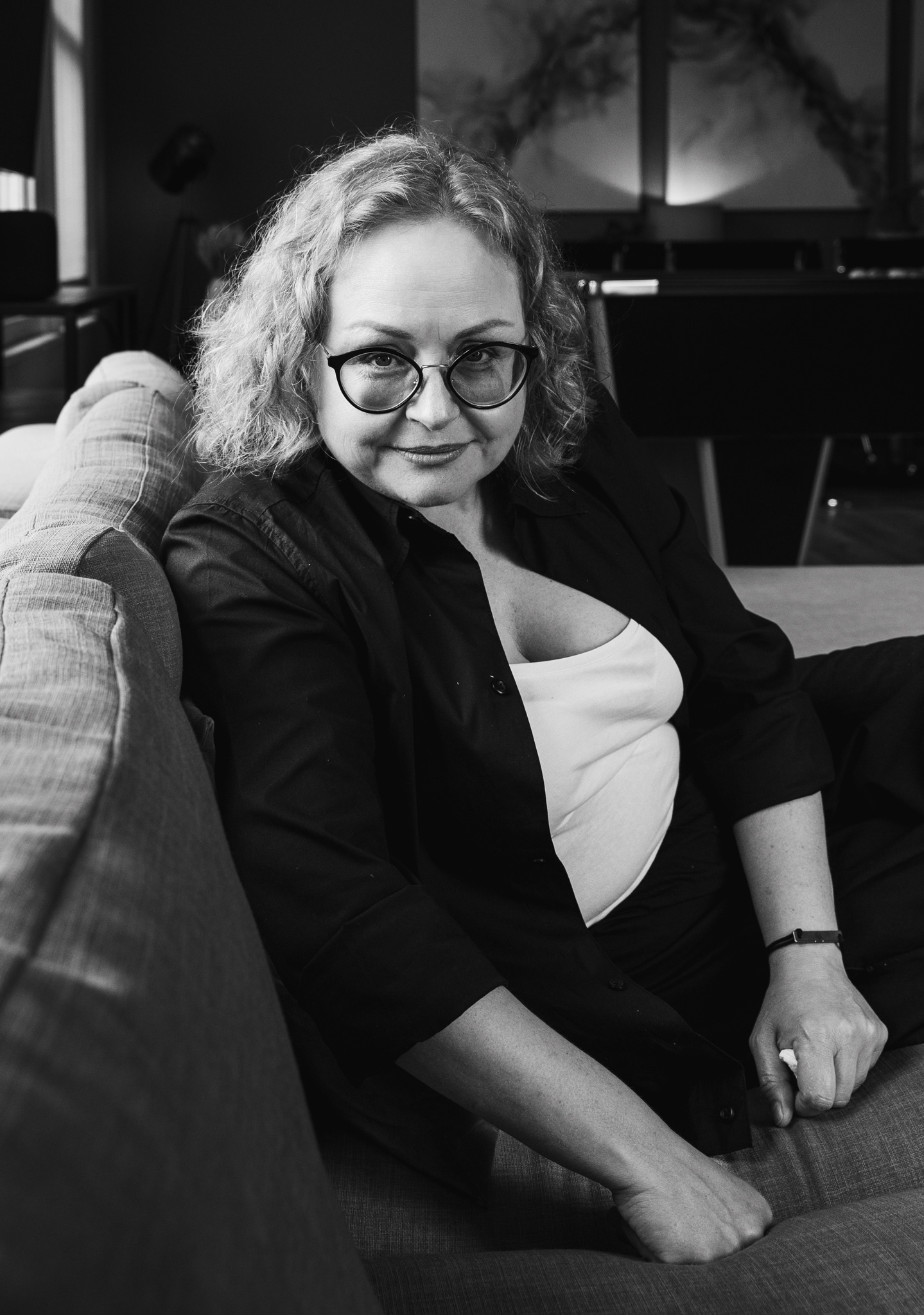
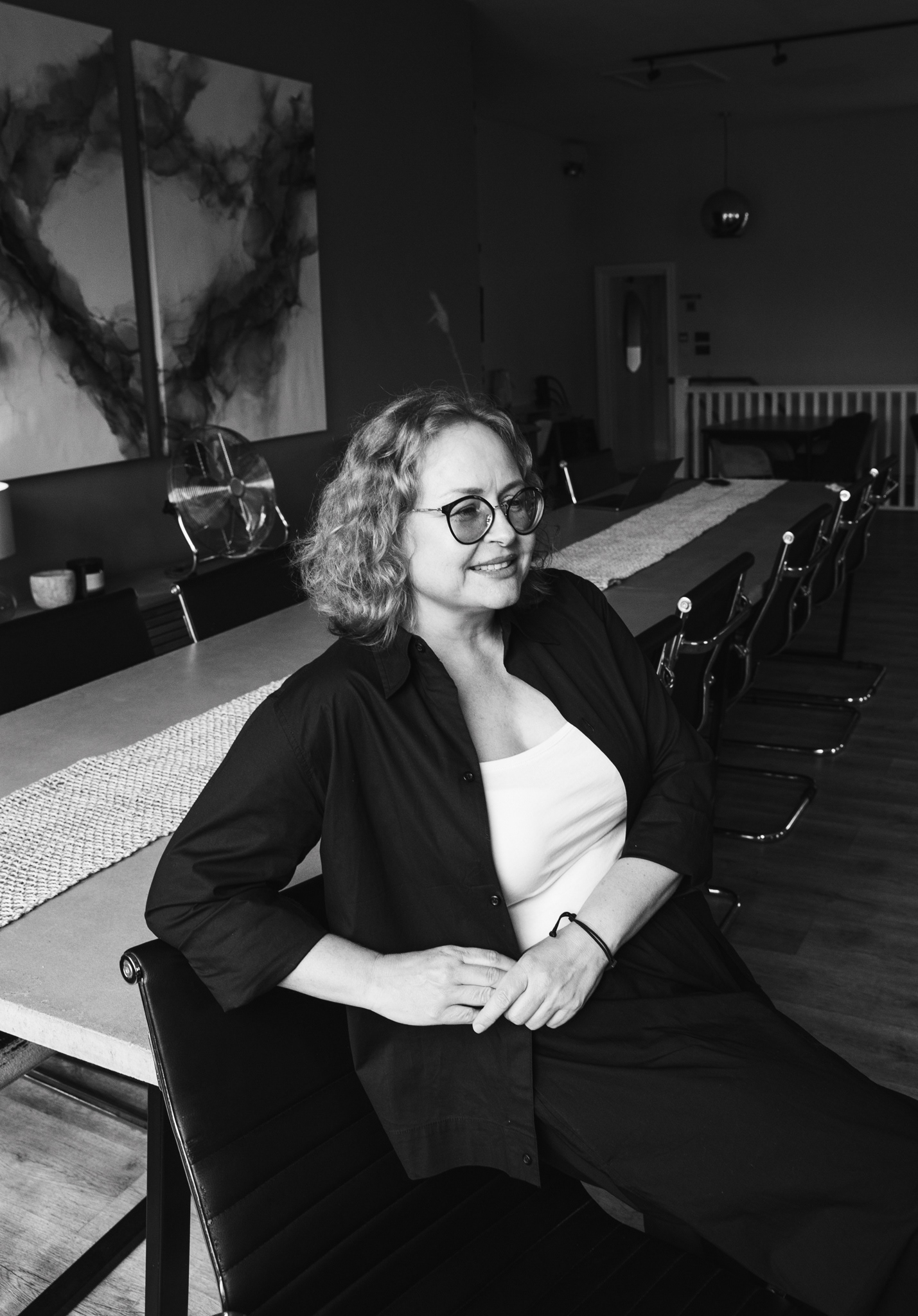
Internal Struggle: Antidepressants and Returning to Herself
All this time, Olga was fighting not only external circumstances but also internal ones. The cumulative stress—rescuing her parents, her husband's injury, constant anxiety—took its toll. In Germany, feeling she could no longer cope, she went to a doctor.
"Like many Ukrainians, my psyche was exhausted. I cried often, gained extra weight, the German language wouldn't stick in my head, and my concentration was at zero. I went to the doctor and got a prescription for antidepressants."
They did indeed become a temporary lifeline, allowing her to function. However, recently, now in England, she made a conscious decision to try living without them. "I just stopped taking them, that's all. I decided I needed to try without them," she says, admitting she didn't do it by the book. "You shouldn't do what I did. You have to reduce the dose very gradually, over at least a couple of months."
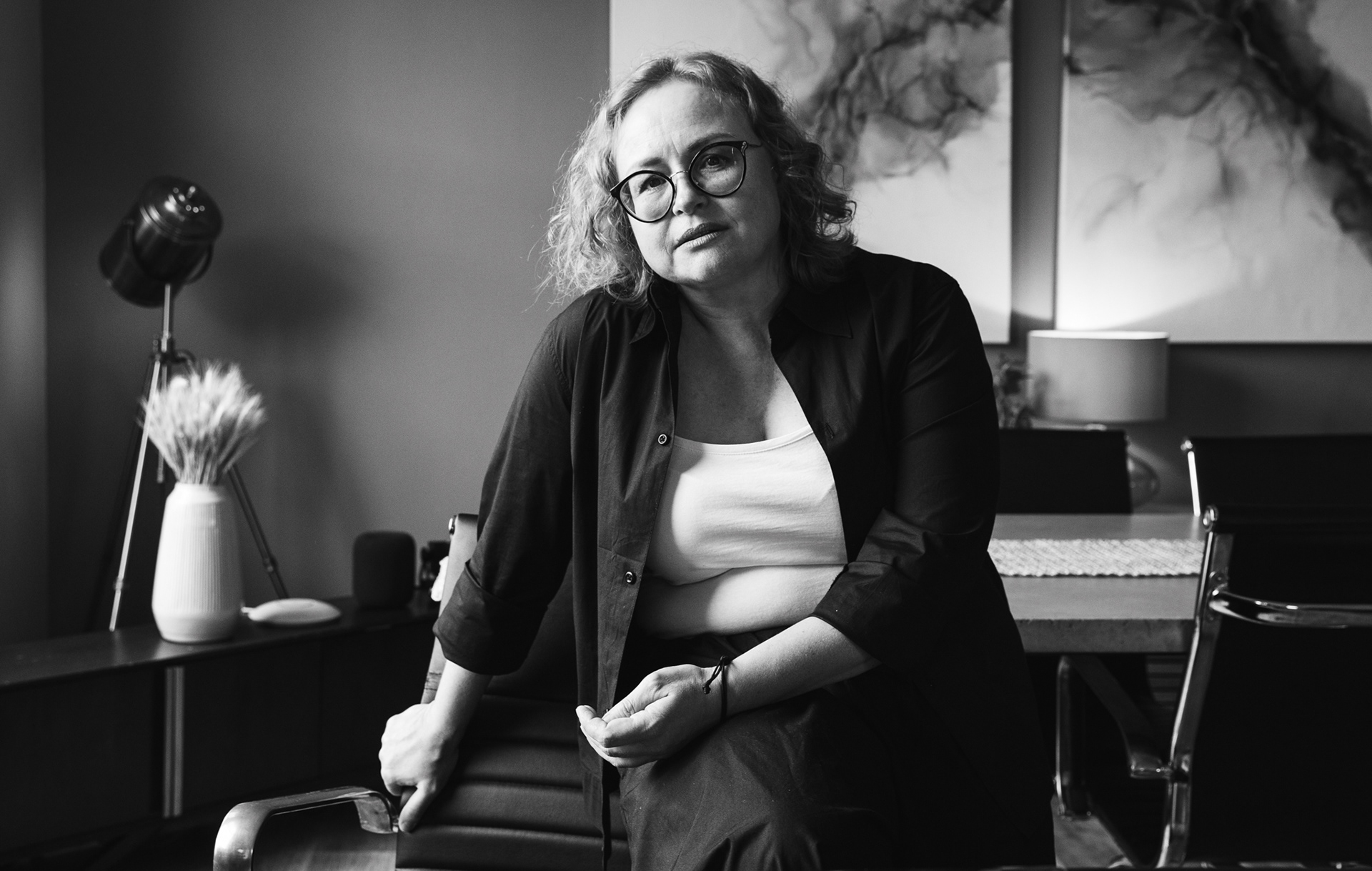
"When you're on antidepressants and you read all this news, you take it relatively calmly... But without them, your sensitivity increases, and you experience everything much more acutely. Sometimes I'll cry three times just reading through my Facebook feed."
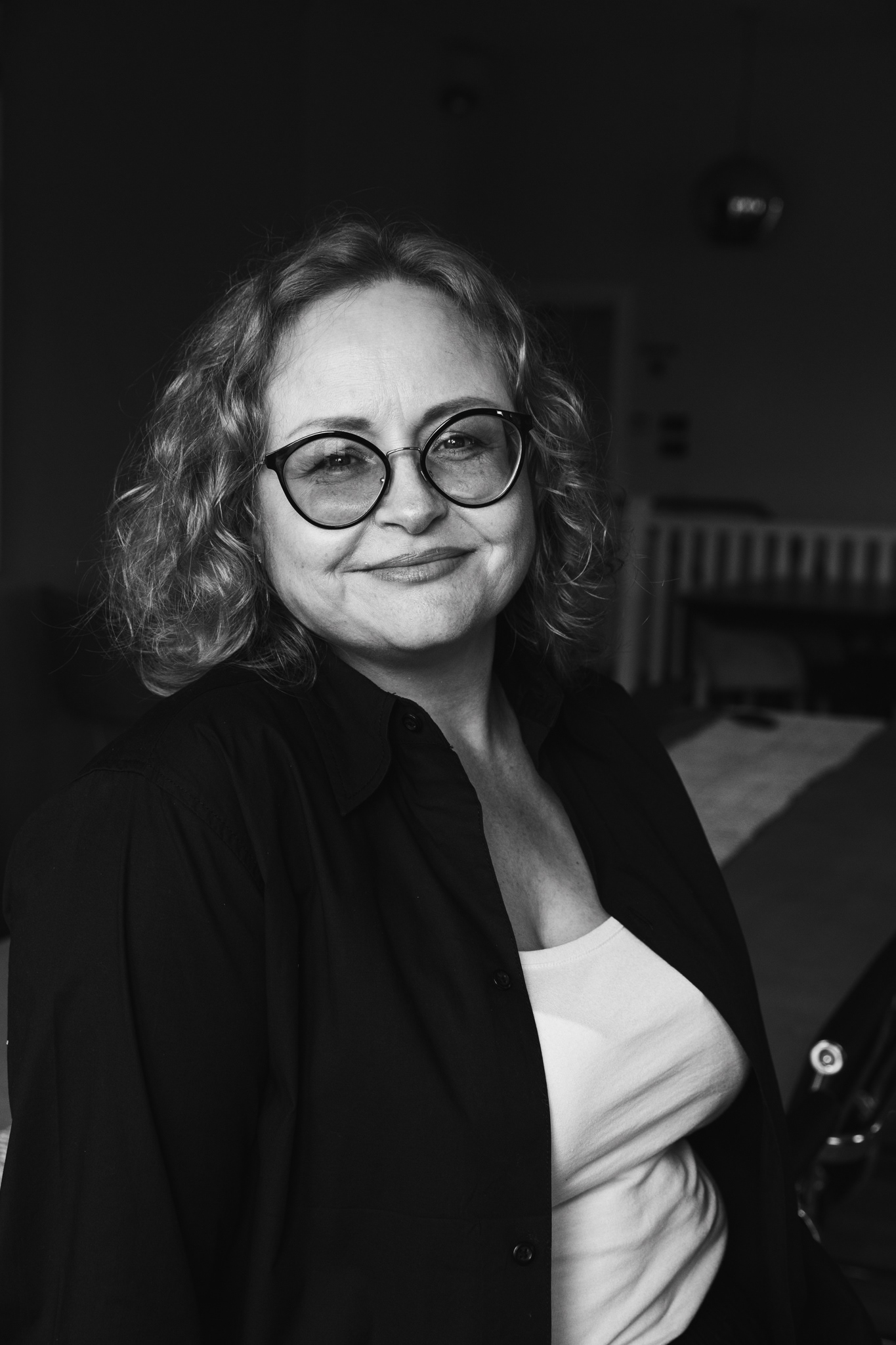
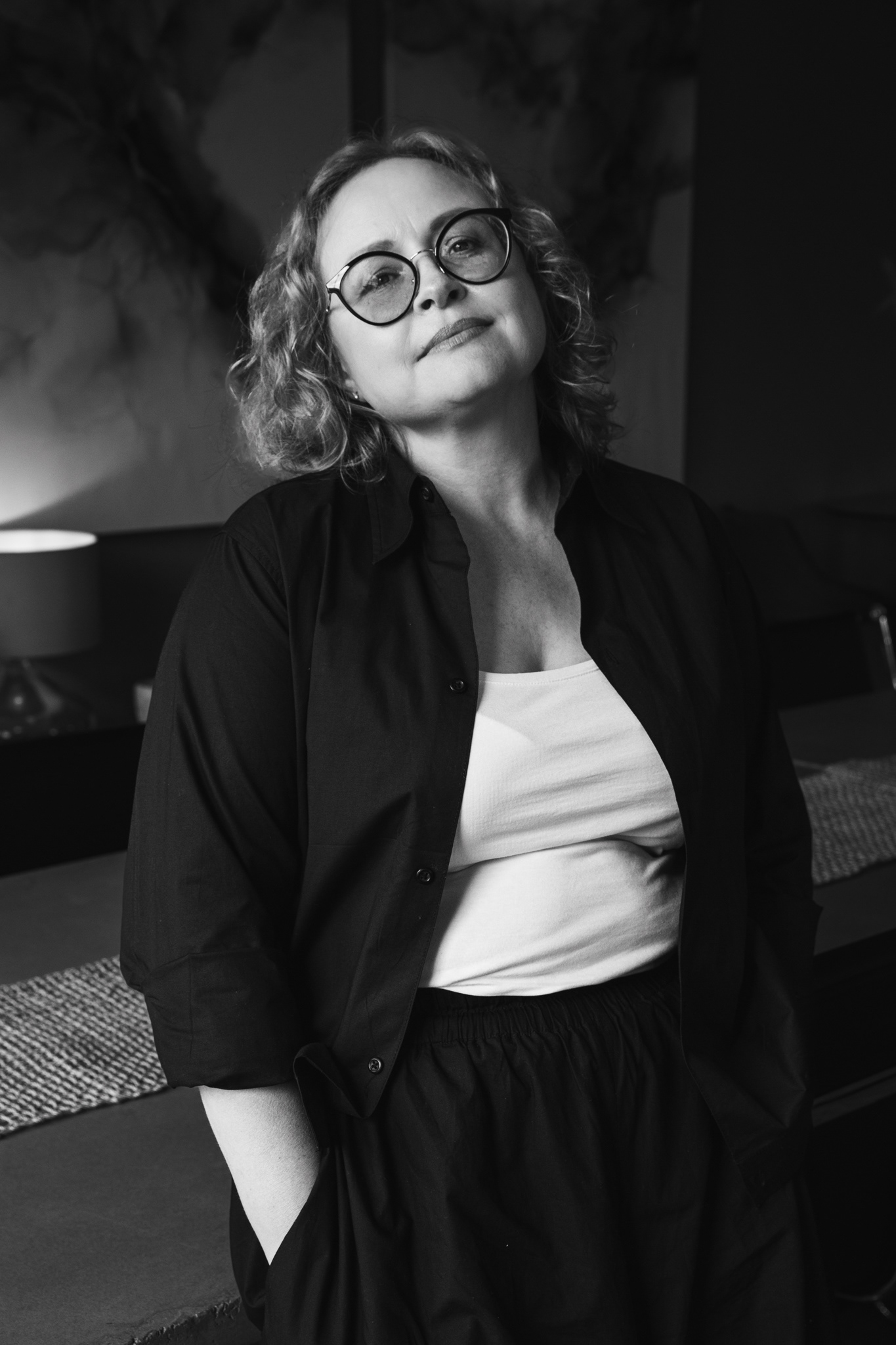
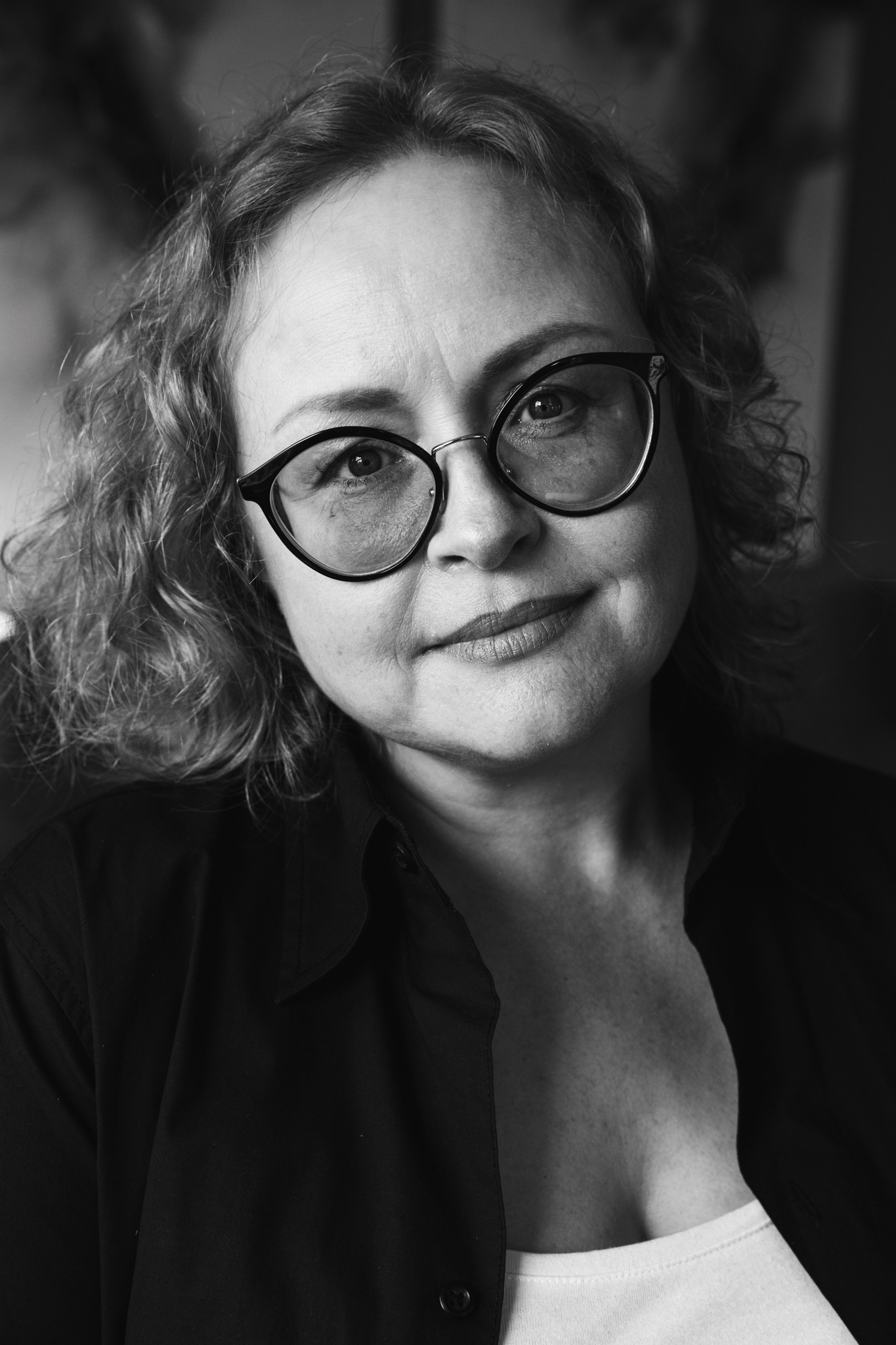
Adaptation, Gratitude, and Self-Discovery
Olha, who has three Ukrainian higher education degrees and worked in the publishing industry in Ukraine, has a completely different job here due to the language barrier. This change in social status is not easy. But she immediately immersed herself in community activities. "I found a really great community here right away. I arrived in the summer of 2023, and there was a festival, and I was happy to help." She became one of the organisers of Ukrainian events and a choir, and this activity, though demanding, gave her a sense of purpose and brought her back to life.
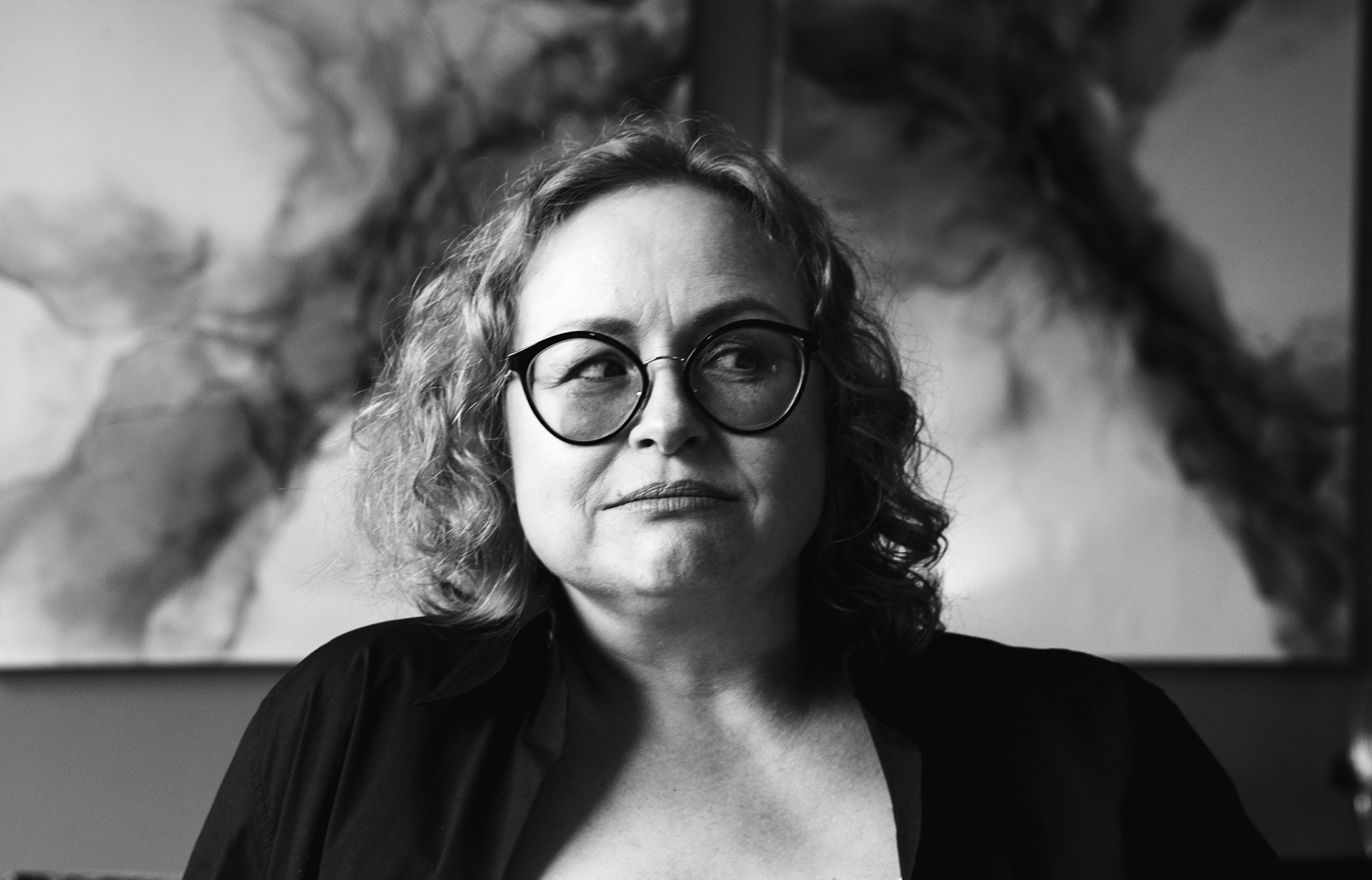
Her adult son, who was 18 when they moved, graduated from a local college with a degree in "film production" and is already working. Olga insists that he get a bachelor's degree, as a British education opens up great opportunities.
But for Olga herself, the language barrier remains the main obstacle. "I don't have much social interaction because of my poor English, and I'm trying to learn it, but... I don't dedicate as much time to it as I'd like," she admits. "Now I'm learning the language with ChatGPT... It explains the grammar to me. I can talk to it for several hours." This constant struggle to express her thoughts freely is part of her daily routine.
Interacting with British people has become a source of inspiration and new discoveries for her. She admires their light-heartedness, openness, and sense of humour.
"I like Britain a lot, I like the people here. It seems to me that they are somehow close to us in spirit; they are so cheerful, quite open, quite easy-going, they make contact easily, they laugh easily."
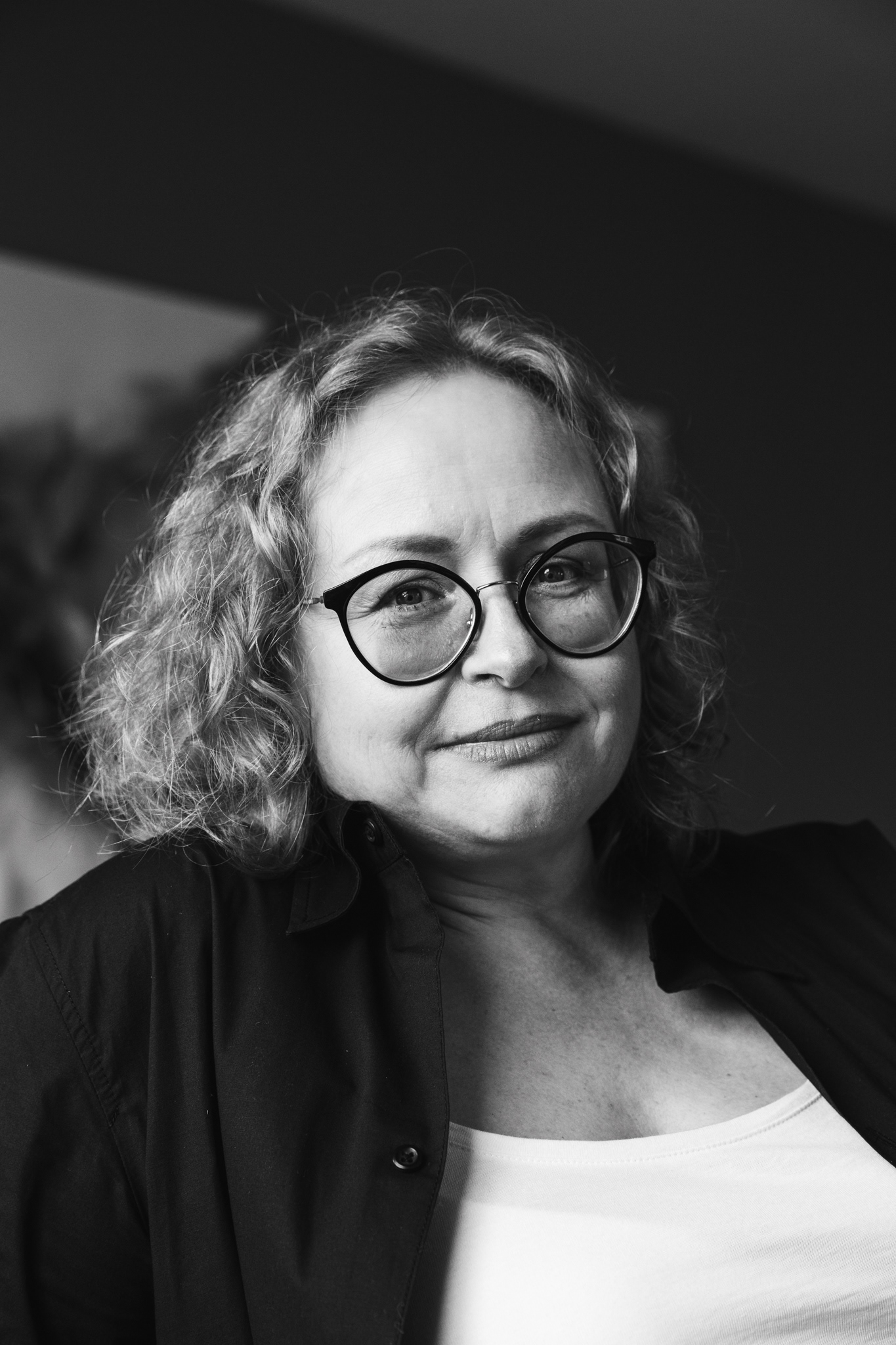
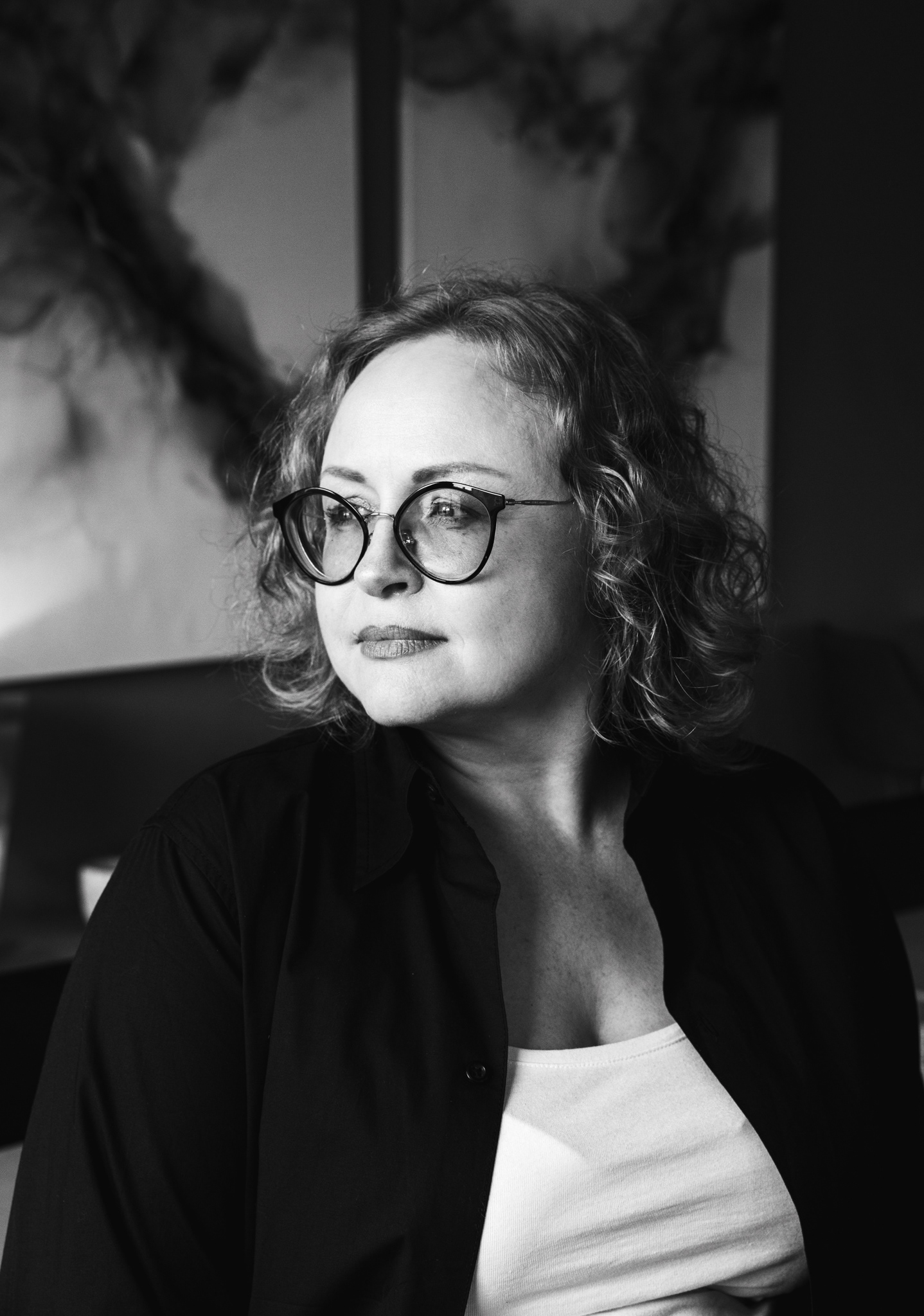
At the same time, she continues to live with Ukraine in her heart. The news from Kyiv, especially about strikes in her Solomianskyi district, causes constant terror. "With horror, of course, every time you look, in which district, in which district... It's already scary. It's scary that just like that, it could hit your apartment too."
Despite the comfort and safety in England, she sees her future in Ukraine. "I think I want to return to Ukraine, I don't see any particular prospects for myself here," she says. "I have a sense of guilt, as my child is already grown, and I could be doing something useful for the country instead of being here." That is why she is now trying to master a third profession—psychology—to be able to help Ukrainians who are going through difficult trials.
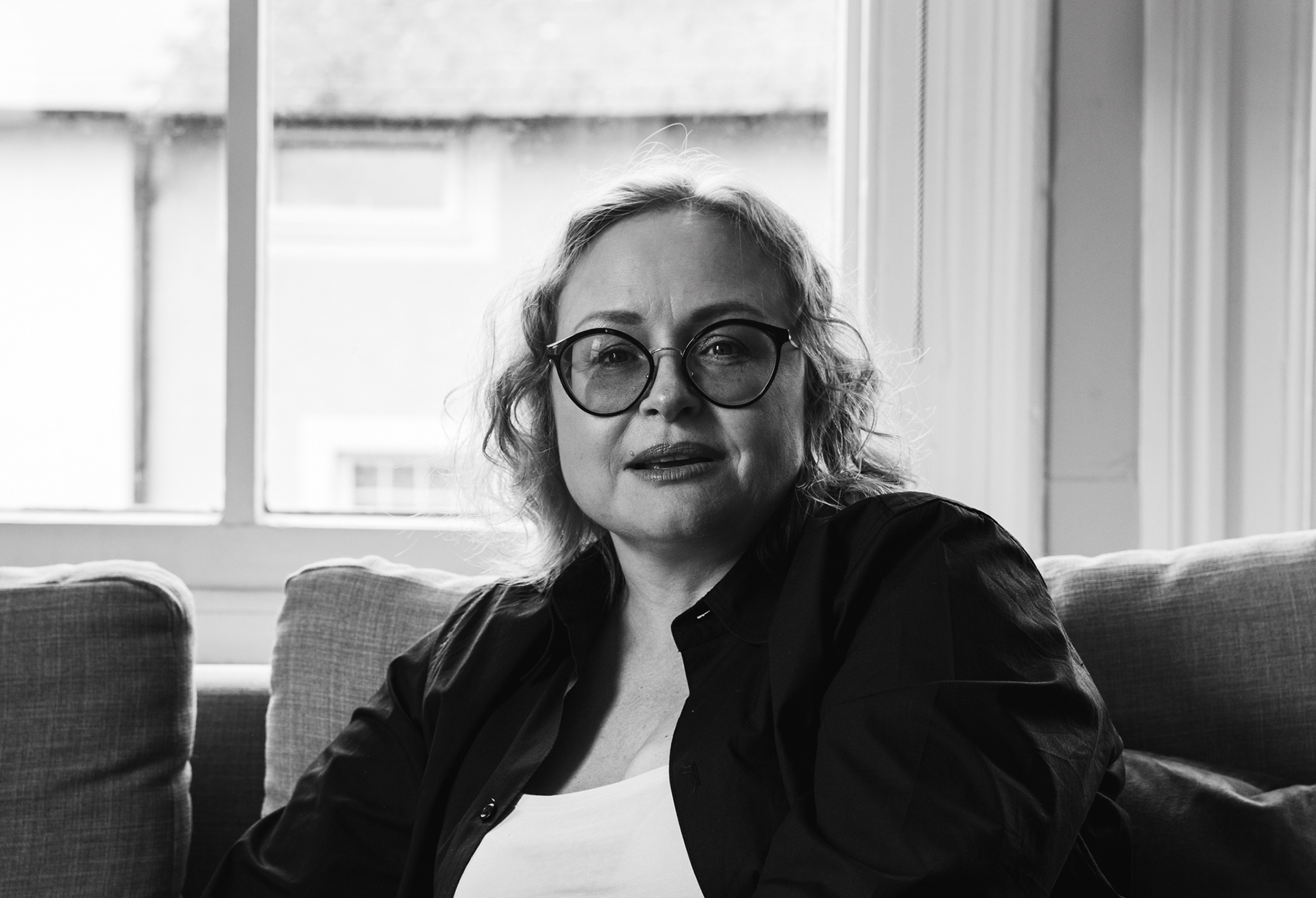
Olha's story is the story of a woman who saved her family, faced daunting challenges, but did not break. She found the strength not just to survive, but to become a centre of gravity for others—to create, organise, and inspire. Her journey is an example of incredible resilience and love for life, proof that even in the darkest of times, one can find light if one carries it within and shares it generously with others.
